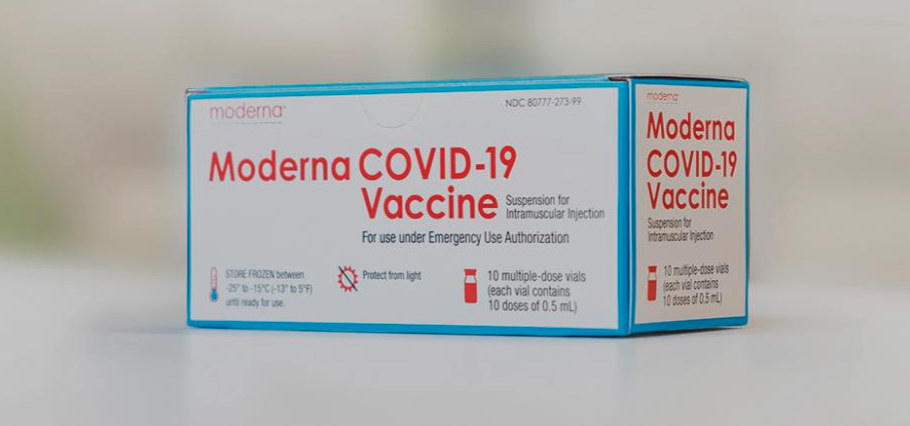What happens (and where) to the Moderna vaccine for the under 30s

The countries that block the use of the Moderna vaccine and the data on myocarditis and pericarditis that motivate the decision. What do Ema and Fda say. And the accounts of the pharmaceutical company
After stopping the administration of the Moderna vaccine for the under 30s in many Northern European countries, Germany and France also advise against its use due to an apparent "slight increase in the risk of myocarditis and pericarditis".
Myocarditis is inflammation of the myocardium, the main muscle of the heart, while pericarditis is inflammation of the pericardium, which is the membrane that surrounds the heart.
THE PRECURSORS
About a month ago, in early October, it was the turn of Sweden, Denmark, Finland and Norway . These countries have decided to suspend the use of Moderna's vaccine in young people for fear of adverse effects – albeit very rare – such as myocarditis.
At the time, the recommendation to prefer Pfizer's vaccine was based on a study that reported "an increased risk of side effects such as inflammation of the heart muscle or pericardium." The document, however, also indicated that "the risk is very low".
THE STOP OF FRANCE
On Tuesday, France announced that it does not recommend the administration of Moderna in under 30s due to the same precautionary principle adopted by other countries.
The Haute Autorité de Santé (Has), the French health authority, gave its opinion following a study, according to which the serum in question "slightly increases the risk of myocarditis and pericarditis" in this age group. Even in this case, however, the authors of the study underline that in any case the benefits far outweigh the risks.
THE FRENCH STUDIO
The study involved a group of people between the ages of 12 and 50 hospitalized in France between May 15 and August 31 for myocarditis. 919 cases of myocarditis and 917 cases of pericarditis were identified. There were no deaths among people admitted to hospital following vaccination.
The researchers therefore concluded that there is a risk of cases of myocarditis or pericarditis occurring in the 7 days following the administration of an mRna vaccine in the 12-50 year old age group, and especially among those under 30 years old.
The episodes are found with both Pfizer and Moderna, but are greater with Moderna. The Has, Reuters writes , said the risk of rare heart inflammation in under 30s appears to be about five times lower with Pfizer than with Moderna.
The number of cases that have occurred, however, still remains low compared to the number of doses administered.
WHY ARE THERE MORE CASES AMONG MEN?
Cases of myocarditis, experts say , "usually go away on their own," but must be evaluated by a doctor. The data also indicate an increased incidence in adolescents and young adult males. According to preliminary analyzes, the connection is particularly clear when it comes to the Moderna vaccine, especially after the second dose.
"A small increase in mild myocarditis has been reported by some health agencies after Moderna's dual vaccination in self-healing males between the ages of 12 and 29," said Paul Burton, Moderna's Chief Medical Officer, clarifying that these "rare cases" do not concern the booster dose.
"The increase in myocarditis has not been observed in women – added Burton – and this suggests that testosterone could be a contributing factor to this rare side effect".
THE INCREASE OF INFECTIONS IN GERMANY
In Germany, the Covid alarm is increasing. In the last 24 hours, according to AP , 40,000 new positives have been registered – a week ago the increase was 20,000. Only 67% of the German population is immunized and Steffen Seibert, spokesperson for Angela Merkel, urged the Germans to follow the example of Italy, Portugal and Spain when it comes to joining the vaccination campaign.
GERMANY ALSO SAYS NÌ A MODERNA
Meanwhile, however, the Standing Committee for Vaccinations of Germany (Stiko) has also recommended the use of Pfize r, instead of Moderna, in under 30s and in pregnant women, as it has shown a lower incidence of heart inflammation.
The recommendation to prefer Pfizer is also valid for boosters even if the first vaccination course was carried out using a different product.
CASES OF MYOCARDITIS AND PERICARDITIS IN ITALY
In Italy, according to the most recent Pharmacovigilance Report on Covid vaccines published by the Italian Medicines Agency (Aifa), with Pfizer, 6 cases of myocarditis / pericarditis were recorded for every million doses administered; while in the case of Moderna every million doses administered the number of cases of myocarditis / pericarditis is slightly higher and reaches, in fact, 11.
EMA AND FDA
In the meantime, the health regulatory authorities are however continuing both to deepen the studies that analyze cases of myocarditis and pericarditis and to carry out other evaluations on the use of the Moderna vaccine.
The European Medicines Agency (EMA) has in fact started the evaluation of the application submitted by Moderna to obtain the green light for the use of its serum in children aged between 6 and 11 years.
The US Food and Drug Admistration (Fda), on the other hand, has postponed the decision on administering Moderna's vaccine to children precisely because of the possible risks.
THE ACCOUNTS OF MODERNA
While vaccinations in Europe and beyond are making Pfizer's fortune – in the Old Continent this is 80% of inoculated vaccines and 74% in the United States – Moderna recently revised downwards from 18 to 15 billion dollars. its estimates on revenues from the Covid vaccine in 2021. On the contrary, Pfizer has raised them for the second time in a year to 36 billion dollars.
This is a machine translation from Italian language of a post published on Start Magazine at the URL https://www.startmag.it/sanita/cosa-succede-e-dove-al-vaccino-moderna-per-gli-under-30/ on Thu, 11 Nov 2021 09:37:40 +0000.
